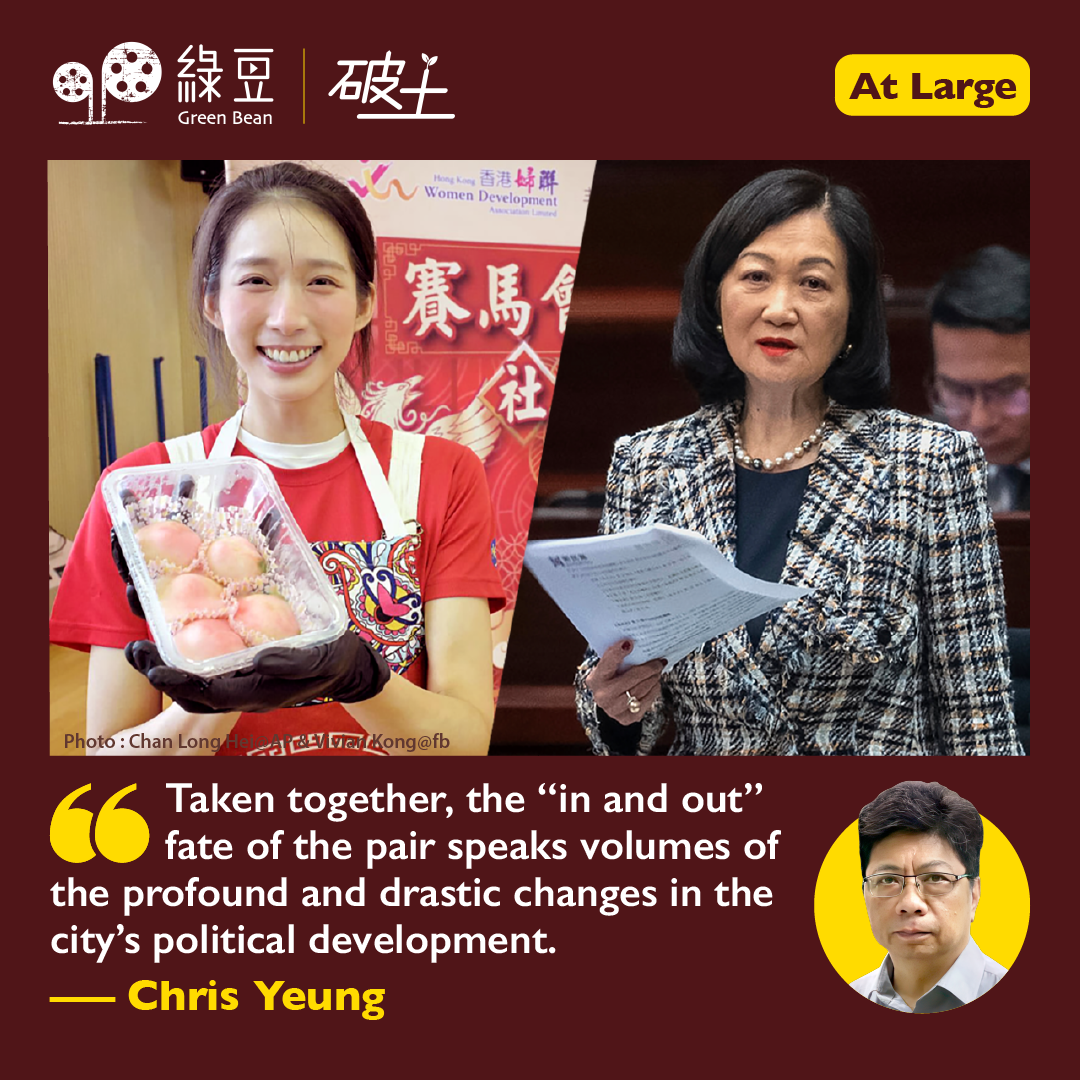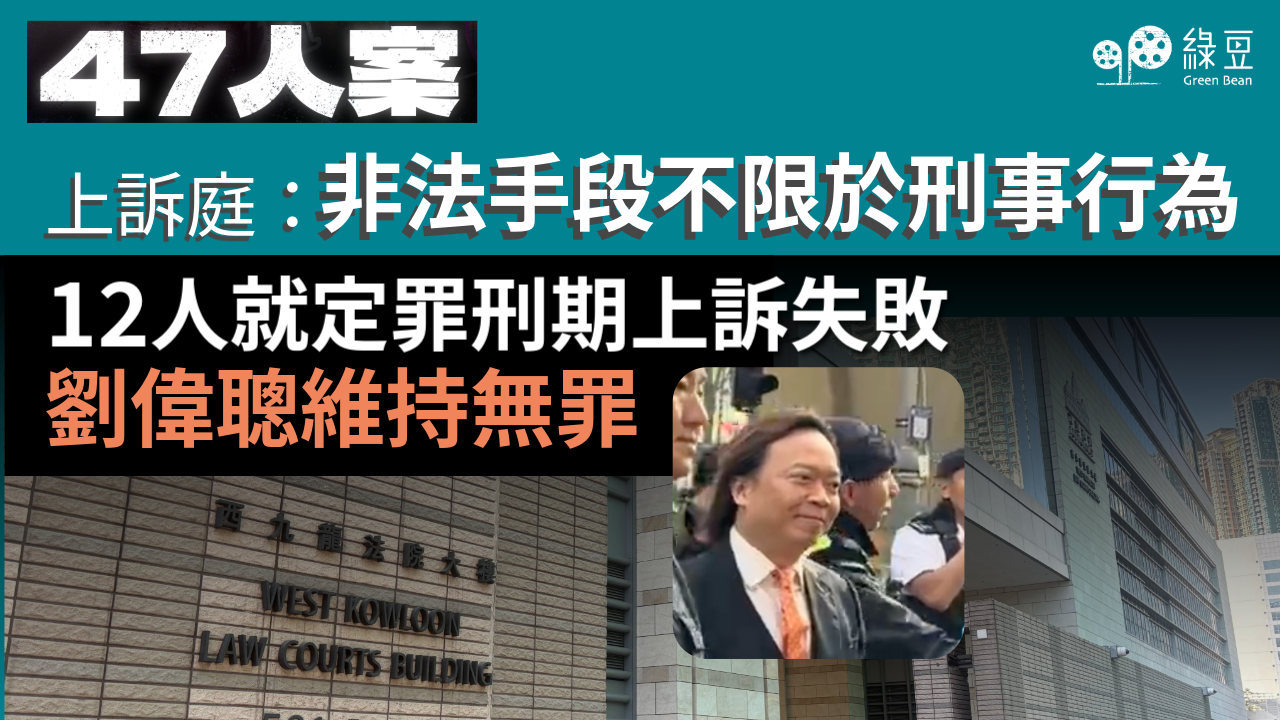A tale of two women in Hong Kong election

The coming Legislative Council election has entered its vote-canvassing stage, culminating to a climax on the December 7 voting day. There will be winners and losers. Two sharply-different personalities, nevertheless, have already emerged as the defining figures in the 2025 Legco race. They are Regina Ip Lau Suk-yee, who has bowed out with a sad note after 17 years in the legislature, and Vivian Kong, an Olympics gold medal winner-fencer, who took a debut in politics with a bang.
Taken together, the “in and out” fate of the pair speaks volumes of the profound and drastic changes in the city’s political development. Their cases have raised a host of questions starting with “four Ws, one H”.
Who will be the “patriots” given a role in running Hong Kong”? Where do they come from? Why do they go to politics? How do they emerge? What are they expected to do in the legislature?
The Story of Regina Ip
Start with Regina Ip. She has a strong case to be given a chance of getting four more years before saying goodbye to elective politics. At the physical age of 75, she has shown no fatigue in politics. The opposite is true.
Thanks to the revamped electoral system in place in 2021, the New People’s Party she co-founded and chaired has emerged as a sizable force in the legislature, at least in numerical terms. It holds six seats in the 90-member Legco, 25 seats in district councils. There are a total of 470 district councillors.
Importantly, she is convenor of the Executive Council, the government’s top advisory body, sharing the limelight with Chief Executive John Lee and central government and SAR leaders at events such as the July 1 anniversary ceremony.
Despite her failure in getting nominations for the 2012 and 2017 Chief Executive elections respectively, Ip has reached a high point in her political career in 2022 with the Exco role assigned by Lee, who reported to her when he held a senior position in the Police in late 1990s.
Win the seat through popular balloting
The prestigious Exco title she will hold until June 30, 2027, now looks certain to mark the end of her journey of a political comeback, which began two years after she ended her civil service career in disgrace. She resigned after half a million people took to the streets. The disgruntled protesters opposed the Article 23 legislation and called for her resignation. She was in charge of the legislative work in her capacity as the then Secretary for Security.
After two years of study at Stanford University, Regina Ip returned to Hong Kong in 2006 and founded Savantas, a think-tank. In 2007, she made an election debut bidding for a seat vacated by a Democratic Alliance for the Betterment and Progress of Hong Kong (DAB) legislator who was convicted of corruption. She lost the battle, being frustrated by former chief secretary Anson Chan. Ip made her second attempt in the 2008 Legco election and won a seat with a high number of votes. She succeeded in all re-election bids since then.
In 2011, she co-founded the New People’s Party, grooming and grabbing more political aspirants to try to have a greater say on how the city should be run.
Except for her background as a senior government official, Ip took the same path leading to power, prominence and influence as many of those in the field of politics, including the soon-to-disbanded Democratic Party and the DAB.
There is no doubt she has her foes and haters, who do not see eye to eye with her on a lot of issues. But if she is respected by some of her opponents it is because she has made it clear what she stands for and serious efforts to win a seat through popular balloting.
Vivian Kong’s political thoughts
Vivian Kong’s imminent rise to political stardom and success of winning a seat in Legco is a totally different story.
By August last year when she put an end to her competitive sports career and joined the Jockey Club, she had not been associated with politics. She had never revealed her thoughts, if any, on political and public issues. When her thesis on the 2014 Occupy Central movement that won her a master degree at Renmin University in Beijing came to light, it was unsurprisingly greeted by shock and awe in the society.
First, it came as a surprise that the star fencer has an interest in the highly controversial political topic in her pursuit of academic studies. More importantly, her thoughts fell in line with those in the corridors of power, triggering a storm of criticism from supporters of democracy in the city.
Entitled “Occupy Central and Its Effect on Hong Kong Election Reform”, her paper praised the revamped “patriots-only” electoral system as an important measure to put the city back on the right track after disruptions caused by the 2019 anti-government protests.
It also argued that some “anti-China disrupters” had misinterpreted the concept of “one country” in the “one country, two systems” governing principle and exploited the city’s elections to enter the political system, resulting in a possible constitutional crisis.
If there were lingering doubts about whether it was a research that reflects what she thinks, they should be laid to rest in the wake of her attempt to practise what she has preached in her master thesis.
Chosen as the right person
Speaking after putting forward her nomination for contesting the tourism constituency seat, she said she decided to leave her “comfort zone” and vowed to “bring honour to Hong Kong.”
Her start of political career was fraught with controversies, ridicule and doubts relating to her Canadian citizenship and the alleged lack of knowledge and experience about tourism, not to mention the basics of a legislator.
Though valid, those doubts and criticism are not relevant in her election bid. She looks certain to be chosen as the right person to help put Hong Kong “back on the right track” and to help interpret the concept of “one country” under the “one country, two systems” policy correctly – in her own words in the thesis.
Welcome to the birth of a new breed of patriot legislators joining the task of ruling Hong Kong.
For the record, Marco Ma Yat-chiu, vice-chairman of the Hong Kong Cultural, Sports and Tourism Association, is also running for the tourism sector seat.
▌ [At Large] About the Author
Chris Yeung is a veteran journalist, a founder and chief writer of the now-disbanded CitizenNews; he now runs a daily news commentary channel on Youtube. He had formerly worked with the South China Morning Post and the Hong Kong Economic Journal.





